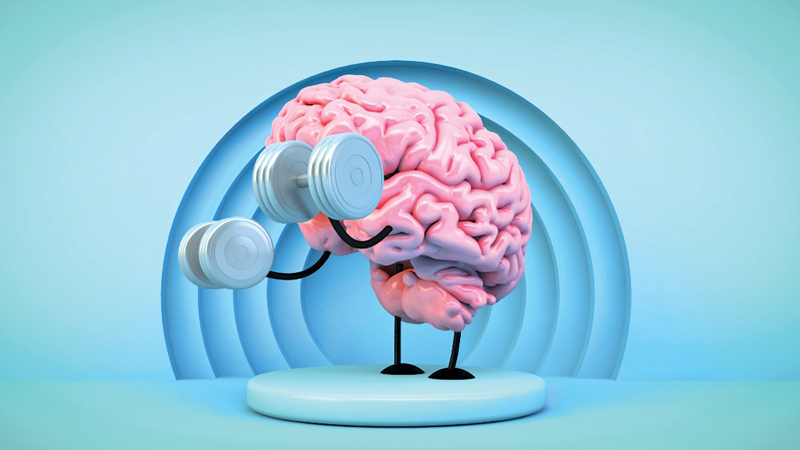The brain, much like other parts of the body, requires regular stimulation and exercise to maintain optimal functionality. Brain exercises, which involve engaging in activities that challenge cognitive abilities, have become increasingly popular due to their ability to enhance memory, sharpen focus, and slow cognitive decline. Many studies have shown that just as physical exercise strengthens the body, mental exercises can improve brain health and cognitive functions.
Brain exercises ensure that the brain remains agile and responsive, reducing the risk of age-related mental decline. These exercises target various cognitive areas, such as memory, problem-solving skills, attention and creativity. By stimulating different parts of the brain, mental workouts help maintain brain plasticity—the ability of the brain to adapt and reorganise itself. This adaptability is crucial for learning new skills and recovering from injuries or illnesses.
One of the most significant benefits of brain exercises is their positive effect on memory. Memory is a vital cognitive function that plays an essential role in day-to-day activities, such as remembering names, dates and facts. Exercises that engage the brain can improve both short-term and long-term memory. For example, crossword puzzles, sudoku and memory games challenge the brain to recall information, enhancing the brain’s ability to store and retrieve memories efficiently.
Research has demonstrated that those who regularly engage in memory-enhancing activities are more likely to maintain sharp memory skills as they age. This benefit is particularly important because memory decline is often one of the earliest signs of cognitive aging and conditions like dementia or Alzheimer’s disease. By keeping the memory muscles active, brain exercises serve as an effective way to prevent or delay cognitive decline.
Cognitive flexibility
Another key benefit of brain exercises is the development of cognitive flexibility, which refers to the ability to switch between different tasks and adapt to new situations. This skill is essential in everyday life, where people often face problems that require creative and critical thinking. Brain exercises that involve logic puzzles, brainteasers, or strategic games, such as chess, ensure that cognitive flexibility is continuously challenged and improved.
Engaging in activities that push the brain to think outside the box enhances problem-solving skills. By forcing the brain to work through complex problems, these exercises strengthen neural connections, which in turn makes problem-solving quicker and more efficient. Cognitive flexibility has also been linked to improved emotional intelligence, as it allows people to manage their emotions better, adapt to social situations and understand others’ perspectives.
In today’s fast-paced world, attention spans are often stretched thin by constant distractions, such as technology, multitasking, and stress. Brain exercises can improve focus and attention by training the mind to stay present and attentive to tasks at hand. Mindfulness practices, such as meditation, are effective ways to boost concentration, as they teach people how to remain aware of their thoughts and surroundings without becoming overwhelmed.
Other exercises, such as memory games or tasks that require sustained concentration, help improve attention by pushing the brain to focus for longer periods without becoming fatigued. Enhanced attention benefits many areas of life, from professional work to personal relationships, as it ensures greater engagement and efficiency in various tasks.
The brain naturally undergoes changes as it ages, leading to a gradual decline in cognitive abilities. However, research has shown that engaging in brain exercises can significantly slow this decline, preserving cognitive function well into old age. While it is impossible to prevent the natural aging process, the brain’s ability to form new neural connections—known as neuroplasticity—ensures that mental exercises can delay the effects of aging on cognition.
People who make brain exercises a regular part of their routines are less likely to experience rapid cognitive decline. In particular, activities that challenge both the body and mind, such as dancing, playing a musical instrument, or learning a new language, have been proven to be highly effective in maintaining cognitive health. These activities engage multiple areas of the brain at once, enhancing overall brain function and promoting long-term mental health.
Brain exercises are not only beneficial for cognitive functions; they also play a crucial role in emotional and psychological well-being. Mental challenges ensure a sense of accomplishment and self-efficacy, which can lead to increased confidence and happiness. Engaging in brain-stimulating activities has been shown to reduce symptoms of depression and anxiety, as it allows people to focus on positive goals and feel mentally accomplished.
Mentally active
Staying mentally active can also foster a sense of purpose, particularly in later life. Many older adults find joy and fulfillment in learning new skills or mastering intellectual challenges. By keeping the mind busy, brain exercises ensure that people remain mentally engaged, which can improve mood, reduce stress and promote a sense of satisfaction.
There are many ways to incorporate brain exercises into daily life. Crossword puzzles, sudoku and word searches are excellent examples of activities that challenge memory and attention. Board games, such as chess or Scrabble, offer opportunities to enhance cognitive flexibility and strategic thinking. Learning a new skill, such as painting, knitting, or playing a musical instrument, not only keeps the brain active but also provides emotional and creative outlets.
Language learning is another powerful brain exercise, as it engages various parts of the brain, from vocabulary recall to auditory processing. Studies have shown that bilingual people tend to have more cognitive reserves, meaning they are less likely to experience early cognitive decline. Taking up a new language or even practising an existing one can be an enjoyable and highly effective way to keep the brain sharp.
Physical exercises also play a critical role in brain health. Activities such as walking, swimming, or yoga increase blood flow to the brain, delivering the oxygen and nutrients necessary for optimal brain function. Many experts recommend combining physical and mental exercises for the best results. For example, dancing engages both the body and mind by requiring coordination, rhythm and memory to learn new steps.









